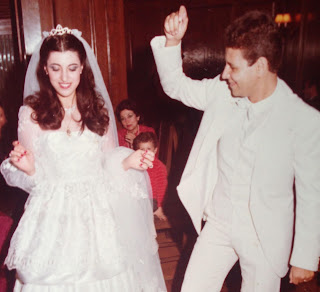All the single ladies | An Evening with the Best Songs of Ahmed Adaweya (1975)
"This is history. I am a whole history. I am king of saltana"
In 1975, the last year Ahmed remains a bachelor, he releases three albums: An Evening with the Best Songs of Ahmed Adaweya (LP) and But Check Out What Adaweya Is Doing (cassette) on Sout El Hob and An Evening with Ahmed Adaweya (LP) on Moriphon. I don't have a copy of the Moriphon.
On its Ahmed Adaweya page, belly dance website Gilded Serpent spends some time unpacking the term "saltana." It's a word Ahmed uses to describe himself and his facility with the mawwal.
"What exactly is Saltana?" Gilded Serpent contributor Amina Goodyear queries. "Nothing is exact in Egypt. The word evokes derogatory connotations of a drugged state. This is how people perceived Adaweya, whether he was awake or asleep. To get Saltana takes time—in performance, sometimes hours. If Tarab is ecstatic joy, then Saltana is the ecstasy of creation. Time passes, and you don’t feel it."
Goodyear notes that, in order to achieve saltana, "many sheikhs, singers, musicians and composers were known to get high," citing hashish as one popular substance. She then recounts that, with the passing of working-class singer Sayed Darwish in 1923 to heart attack or overdose, "it was rumored that a member of the Oriental Music Institute said, 'That’s the end of debauchery in this country!'"
Goodyear, James R. Grippo (in Music and Media in the Arab World), and the El Dahih video cite a no-longer-extant 2010 Al Ahram Online interview with Ahmed by Injy al-Kashef, wherein Ahmed claims the word for himself:
"I am a saltangi. Saltana is my thing -- I can sing, and alternate between different maqamat [modes]: from the rast, I can slide into nahawand, theninto higaz; I can play with sika and move to bayati, to saba. This is saltana -- It’s all in the maqam. I have achieved this after a tough and tempestuous life. I have basically seen the depth of the pits when I started from the very bottom of the ladder. ... It is my singing experience in mulids and tents that founded my entire career. My own talent combined with such a life has qualified me for the equivalent of a PhD in music. I never studied music, except through feeling, listening and a tough life. Many musicians have reached top academic degrees in music, but they do not have saltana; they turn to someone like me and seek my experience in saltana. The mawwal is my game. I sing all maqamat in the mawwal. This is history. I am a whole history. I am king of saltana."
An Evening with the Best Songs of Ahmed Adaweya is, like Ahmed Adaweya 2, a compilation, mostly of previously released recordings. It's worth a listen as, in addition to two tracks previously unreleased, some of the priors are different versions.
Track 4, "Salamat Ya Einaya," is composed by Salah Arram, founder of Firquat Al-Awtar Al-Dhabiyyah, or the Golden Strings Orchestra, with lyrics by our old friend Mamoun El Shinnawi, and appears here for the first time.
Track 5, "Mawwal El Alb Elly Engarah," sees Mohamed Asfour and Hassan Abu Itman collaborating again on the LP's other previously unreleased track.
Additionally, we're treated to an eight-minute-long version of "Haba Fouk We Haba Taht," although it turns out to be a mashup of that song and its original B-side, "Mawwal." While this may seem arbitrary, it more closely matches how Ahmed might have performed the two live on stage (remember, for instance, this 1980 video).
Here's Side A






Comments
Post a Comment